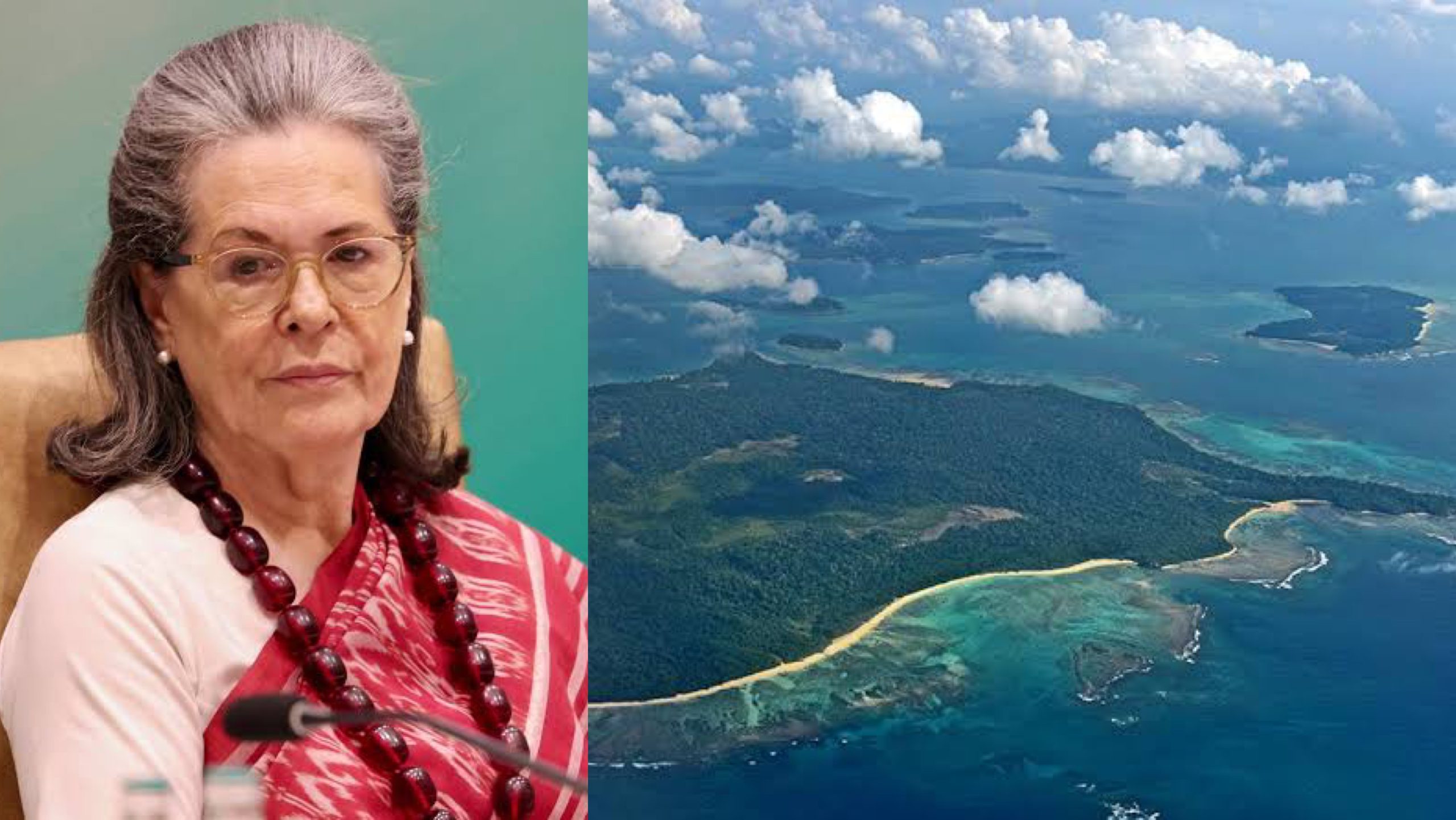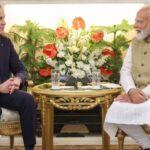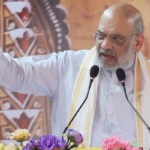In her editorial “The making of an ecological disaster in the Nicobar” (The Hindu, September 8, 2025), Sonia Gandhi declares the Great Nicobar Project to be a “totally misplaced ₹72,000 crore expenditure” that poses an “existential danger” to the island’s indigenous communities and “threatens one of the world’s most unique flora and fauna ecosystems.” She accuses the Modi government of “trampling on tribal rights” and making “a mockery of all legal and deliberative processes.”
The rhetoric is vintage Congress: turning development into disaster, and portraying every large-scale project as a betrayal of the Constitution. But a closer look reveals how selective, alarmist, and politically motivated these claims are.

“Uprooting tribals” or empowering communities?
Gandhi claims the project will “permanently displace” the Nicobarese and Shompen tribes. Yet, the designated development zones have been carefully demarcated to minimise overlap with tribal settlements. The claim of total uprooting is an exaggeration. Ironically, it was during the 2004 tsunami that the Nicobarese lost their ancestral villages. Congress was in power then, and little was done to rebuild or integrate communities with modern infrastructure. Today, when the government proposes roads, power, and connectivity, Congress paints it as “existential threat.”
“Mockery of due process” or multiple layers of review?
Gandhi argues that “due process and regulatory safeguards have been evaded” and cites flaws in Social Impact Assessments. What she omits is that the project has been vetted by the National Green Tribunal, a High Powered Committee of the Environment Ministry, and the National Centre for Sustainable Coastal Management. The NCSCM’s ground-truthing exercise found the project area fell under CRZ 1B, where ports are permitted, not CRZ 1A, where construction is barred. This is not mockery of process, but adherence to it.
“Afforestation as a farce” or a global compensatory plan?
Gandhi ridicules compensatory afforestation, calling it “a gross environmental and humanitarian catastrophe.” But she ignores that afforestation is a legally mandated offset under the Forest Conservation Act, with strict oversight mechanisms. To dismiss it outright is to disregard established frameworks that India and the Congress-led governments she once headed have themselves followed for decades.
The strategic silence
Most telling is what Gandhi does not mention. Nowhere in her column does she acknowledge that 25% of India’s cargo is transshipped through foreign ports, with Colombo, where China controls a terminal, handling 40% of our trade. Nowhere does she admit that Galathea Bay, with its 18–20 metre depth and location on the East-West shipping route, offers India a once-in-a-century opportunity to build a transshipment hub that can rival Singapore and end our dependence on Beijing-linked facilities. For Congress, the strategic argument simply does not exist.
Congress’ bogey of “ecological concerns”
This is part of a long pattern. Congress governments in the past blocked airstrips, radar facilities, and port expansions in the Andaman and Nicobar Islands by citing fragile ecosystems. The result? The archipelago was left strategically underutilised and economically stagnant. Sonia Gandhi’s piece is merely the latest edition of this playbook, raising the bogey of ecology to stall a transformative project.
The reality of the Great Nicobar Project
In 2024, the Narendra Modi government formally recognised Galathea Bay as a ‘major port’, a move that places the Rs 44,000-crore project under the administrative control of the Ministry of Ports, Shipping, and Waterways, making it eligible for central funding. The facility will be developed in four phases, with Phase 1 scheduled for completion in 2028, capable of processing 4 million TEUs. By 2058, the port is projected to handle up to 16 million TEUs.
This is not just about building another port; it is about fixing a decades-long weakness in India’s maritime infrastructure. Almost all major Indian ports on the east coast have drafts of 8–12 metres, insufficient for large vessels. Global ports, by contrast, maintain depths of 12–20 metres or more, which allows them to handle ships carrying over 165,000 tonnes. India, therefore, has had to rely on foreign hubs, Colombo, Singapore, Klang, for nearly 25% of its cargo, losing an estimated Rs 1,500 crore annually in direct port revenue and Rs 3,000–4,500 crore to the economy overall.
Galathea Bay, with its natural depth of 18–20 metres and proximity to the East-West sea route, is uniquely suited to reverse this dependence. Strategically, it positions India to compete with Singapore for traffic from Bangladesh and Myanmar, where over 70% of cargo is currently routed via foreign ports.
The national security blind spot
What Sonia Gandhi carefully avoids mentioning is the national security angle. India currently depends on Colombo for over 40% of its transshipment at a port where China operates a terminal and has poured billions into related infrastructure. As Sri Lanka grows financially beholden to Beijing, even allowing Chinese surveillance ships to dock, India’s vulnerability becomes glaring. In such a context, opposing Galathea Bay is not ecological caution; it is strategic naivety.
Sonia Gandhi concludes that “the very survival of the Shompen and Nicobarese tribes is at stake” and that “India’s future generations cannot afford this large-scale destruction.” The truth is the opposite: India cannot afford to remain hostage to foreign ports and Chinese leverage. The Great Nicobar Project is not about destroying the environment; it is about ensuring national security, creating jobs, and positioning India as a maritime power.
Sonia Gandhi’s article is less an environmental plea than a political tactic. By crying “disaster” at every bold step forward, Congress reveals not vision but fear of change. The real disaster would be to let such alarmism derail India’s strategic future.












